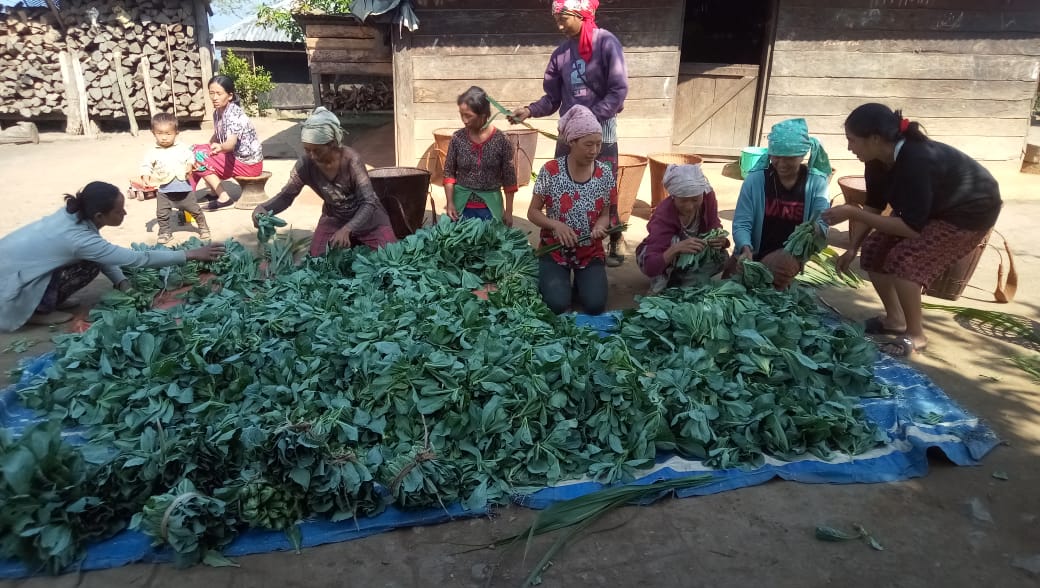Mrs T Shilu (33 yrs) and Mrs S Mathsϋlu (44 years) are both women farmers and members of New Phor Women farmers group initiated by NEN. They have been a part of this group since its formation in 2019. New Phor village is situated under Weziho block in Phek district, Nagaland. It is also one of the NEN partner communities of the REC project “No One Shall Be Left Behind Initiative”. The New Phor Women farmers group was initially formed with 24 members and were given some financial assistance by NEN for the cultivation of millets and other crops. They continued growing millets in their family fields but they decided to also collectively cultivate and sell other crops like kidney beans, cabbage and mustard.
“Unlike many other places where movements are restricted, it’s much more relaxed in our village” shared Mathsϋlu. “We are all farmers and agriculture is the main source of our livelihood. The village leaders have allowed us to continue our farming work since it is now the sowing season” she added. They shared that this lockdown has in some way benefitted them as it allowed them to engage their children into farming works with schools being shut.
They both expressed that the youth need to understand the struggles and difficulties of the parents, and most importantly of farmers. Engaging children in such activities provide them with opportunities to make mature decisions and learn to grow their own food.
The lockdown caused due to this pandemic has also made many of their community members living in towns like Kohima, Dimapur, Meluri and other centres come back to the village and contribute to farming activities. This plantation season, for many young people, is their first time sowing paddy in jhum fields. Six families who have been residing in towns returned to the village and have started cultivating (both Jhum and Terrace) as a result of the lockdown.
In this distressed time, many families in the community are struggling with access to food and income. Therefore, as a group, they made a decision to share the vegetables from the farm to the community people. “We distributed the collected vegetables to about 60 households” shared T.Shilu.
Seizing every opportunity to strengthen the campaigns on “WASH” and “Nutrition through Biodiversity”, Abel the Field Coordinator from NEN on May 11, 2020, while the group distributed the vegetables, shared the importance of handwashing and good nutrition with the community members. Especially as these campaigns which have run for the last month or more prepared the community for the times of COVID-19.
REPORTED BY NEN
 Translate
Translate





